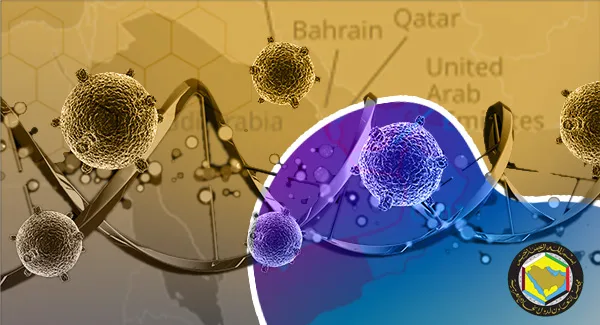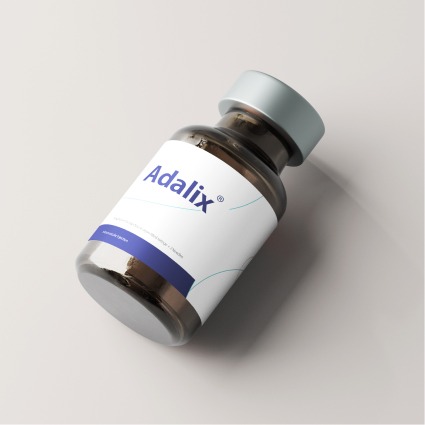Introduction
Cancer remains a significant public health challenge worldwide, and the Gulf Cooperation Council (GCC) countries—including Bahrain, Kuwait, Oman, Qatar, Saudi Arabia, and the United Arab Emirates—are no exception. Despite notable advancements in healthcare infrastructure and cancer treatment, the GCC faces unique challenges requiring tailored strategies. However, there are emerging opportunities in oncology in the GCC, such as introducing advanced treatments and establishing regional initiatives. This article explores the state of oncology in the GCC, emphasizing epidemiological trends, healthcare investments, and these emerging opportunities supported by the latest data and statistics.
Cancer Epidemiology in the GCC
Rising Cancer Incidence
Between 2010 and 2020, the GCC experienced a significant rise in cancer incidence. This rise is not just a statistical trend but a pressing public health issue that demands immediate attention. According to the International Agency for Research on Cancer (IARC), the region recorded 72,000 new cancer cases in 2020, a figure projected to double by 2040 due to population growth, aging, and lifestyle changes. Breast cancer is the most prevalent type among women, accounting for approximately 29% of all cancer cases in the GCC, while colorectal cancer leads among men at 15%.
This rise can be attributed to several factors, including an increase in obesity rates, dietary changes, tobacco use, and physical inactivity. For instance, tobacco use accounts for nearly 22% of cancer-related deaths in the GCC. Meanwhile, the aging population further exacerbates the burden, with individuals over 65 accounting for a disproportionately high share of cases.
Key Statistics
– Saudi Arabia: The Kingdom reports 27% of the GCC’s total cancer cases, with an estimated 18,000 new diagnoses annually. Prostate cancer is the leading cancer type among men, while breast cancer dominates among women.
– United Arab Emirates: Cancer is the third leading cause of death, contributing to 12% of total mortalities in 2021. Lung cancer and breast cancer are the most commonly reported types.
– Oman: The annual cancer incidence rate is 71.1 per 100,000 population, with gastric cancers and leukemia showing higher prevalence compared to neighboring states.
– Kuwait and Qatar: Both nations report increasing colorectal and lung cancer cases, with dietary changes, including higher red meat consumption and smoking, being key contributors.
Mortality Rates
Despite improvements in early diagnosis and treatment, the GCC’s cancer mortality rate remains concerning. According to the World Health Organization (WHO), the region’s five-year cancer survival rate averages 60%, compared to 80% in high-income countries. Challenges include limited access to advanced treatment modalities and late-stage diagnoses. For example, nearly 70% of breast cancer cases in Saudi Arabia are diagnosed at stages III or IV, reducing the effectiveness of treatment.
Healthcare Investments and Oncology Infrastructure
Enhanced Healthcare Spending
Enhanced Healthcare Spending the GCC governments have made significant strides in prioritizing oncology within their healthcare agendas. In 2022, Saudi Arabia allocated $48 billion to healthcare, with 12% dedicated to cancer-related services. Similarly, the UAE invested a commendable $3.8 billion in advanced oncology centers and medical technology. Qatar’s Hamad Medical Corporation expanded its oncology department with an additional $400 million investment to cater to its growing population. These substantial investments signal a promising future for oncology in the GCC.
Specialized Cancer Centers
The region boasts several state-of-the-art cancer treatment facilities:
– King Hussein Cancer Center (Saudi Arabia): One of the Middle East’s most advanced institutions, offering comprehensive cancer care, including bone marrow transplantation and advanced radiotherapy.
– Al Amal Cancer Center (Kuwait): Specializes in radiotherapy and chemotherapy, treating over 6,000 patients annually.
– National Cancer Institute (Oman): Focuses on early detection programs and advanced diagnostic technologies, such as molecular imaging and genetic profiling.
– Sheikh Khalifa Specialty Hospital (UAE): Known for its precision medicine approaches, this facility integrates genomic profiling into routine cancer care.
Access to Innovative Therapies
In recent years, GCC countries have embraced cutting-edge treatments such as immunotherapy and precision medicine. The UAE’s Mubadala Health launched a genomics initiative in 2023, while Saudi Arabia has expanded clinical trials for CAR-T cell therapies. Bahrain introduced proton therapy in 2024, making it one of the few countries in the region to offer this advanced treatment.
Challenges in Oncology Care
Late-Stage Diagnoses
Delayed cancer detection remains a significant obstacle, with a 2021 study published in the Gulf Journal of Oncology revealing that 45% of cancer cases in the GCC are diagnosed at stage III or IV. This not only reduces survival rates but also significantly increases treatment costs. The findings underscore the urgent need to improve early detection programs and raise awareness about recognizing early symptoms.
Workforce Shortages
The region faces a shortage of oncologists and specialized nurses. According to the GCC Cancer Center Network, there are only 2.1 oncologists per 100,000 population, compared to the global average of 3.8. Oman and Bahrain have the most acute shortages, with efforts underway to attract international expertise and train local healthcare providers.
Lifestyle Risk Factors
Rapid urbanization has led to sedentary lifestyles, unhealthy diets, and increased tobacco use. The prevalence of obesity, a significant cancer risk factor, is alarmingly high:
– Saudi Arabia: 35% of adults are classified as obese.
– Kuwait: Leads the GCC with an obesity rate of 37%.
– Qatar: 34% obesity prevalence, driven by high-calorie diets and reduced physical activity.
Financial Barriers
Despite government subsidies, the high cost of cancer treatments poses significant challenges for low-income residents and expatriates. For instance, a single cycle of targeted therapy can cost up to $10,000 in private hospitals, a cost that is often beyond the reach of many. Bahrain and Oman’s governments have introduced partial subsidy programs, but coverage remains limited for advanced therapies like CAR-T. These financial barriers affect individual patients and highlight the equity issues in cancer care, emphasizing the need for comprehensive healthcare coverage.
Regional Initiatives and Collaborations
Gulf Cancer Awareness Week
Launched in 2020, the Gulf Cancer Awareness Week has been a resounding success. This initiative is significant as it promotes early detection and prevention through public campaigns and free screening programs. In 2023, over 250,000 GCC residents participated, leading to a 12% increase in early-stage breast cancer diagnoses. The success of this initiative underscores the importance of public health campaigns and instills hope for further progress in cancer prevention and early detection in the GCC.
Unified Cancer Registry
The GCC’s unified cancer registry, established in 2021, facilitates data sharing and research collaboration across member states. By 2024, the registry aims to integrate AI for predictive analytics, enhancing epidemiological insights. Early results indicate a 15% improvement in identifying high-risk populations for targeted screening.
Partnerships with Global Institutions
GCC countries have partnered with leading global organizations, such as the American Cancer Society and the European Society for Medical Oncology (ESMO), to train healthcare professionals and implement evidence-based guidelines. Qatar’s partnership with Harvard Medical School has led to advanced training programs for oncology specialists.
Future Directions
Expanding Screening Programs
To address late-stage diagnoses, GCC governments are scaling up national screening initiatives. Saudi Arabia’s Vision 2030 includes a goal to screen 70% of eligible women for breast cancer by 2025, up from the current 45%. Oman has expanded colorectal cancer screenings to include individuals aged 40 and above.
Digital Health Innovations
The UAE and Qatar are investing heavily in telemedicine and AI to improve cancer care accessibility. For example, the UAE’s “TeleOncology” platform connects rural patients with specialists in urban centers. Qatar’s AI-driven diagnostic tools reduced average diagnostic times by 25% in 2023.
Strengthening Research
The GCC is emerging as a hub for cancer research. In 2024, the Qatar Biomedical Research Institute launched a $100 million fund to study cancer genomics, focusing on hereditary cancers prevalent in Arab populations. Saudi Arabia’s King Abdullah University of Science and Technology (KAUST) collaborates on precision oncology trials with international institutions.
Workforce Development
To address workforce shortages, Oman and Bahrain have introduced scholarships for medical students specializing in oncology. They aim to double the number of practicing oncologists by 2030. Saudi Arabia also plans to establish a regional oncology training center by 2025.
Conclusion
The GCC has made commendable progress in oncology, from investing in advanced treatment facilities to launching regional collaborations. However, challenges like late-stage diagnoses, workforce shortages, and lifestyle-related risk factors persist. By prioritizing early detection, leveraging technology, and fostering regional and international collaborations, the GCC can pave the way for a future where cancer care is accessible, effective, and equitable. With concerted efforts, the region can meet its 2025 goals and set an example for other nations grappling with similar challenges.
Discover the future of biologic treatments and biosimilars at Opal Bio Pharma’s official site.

